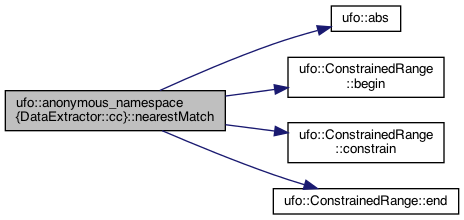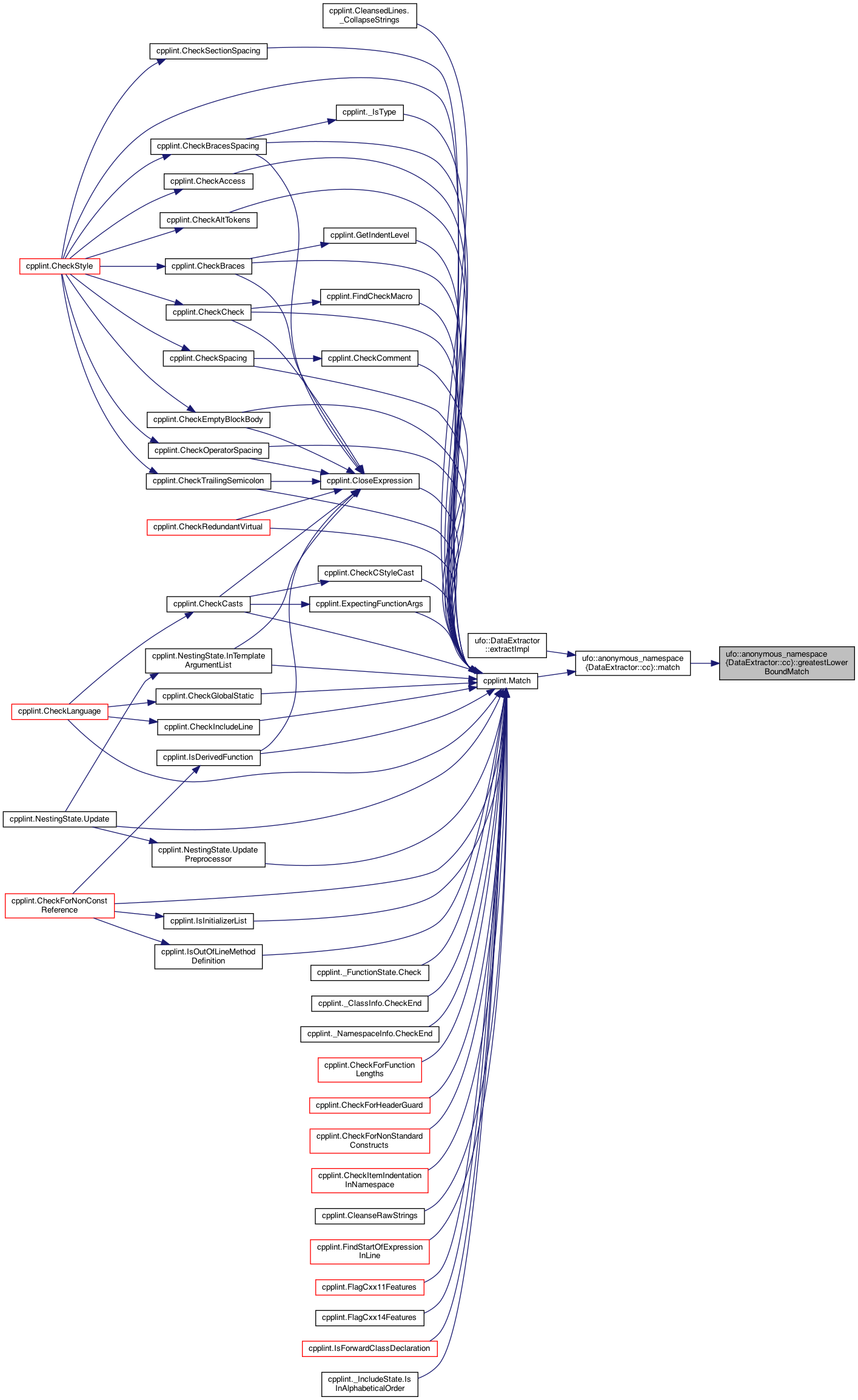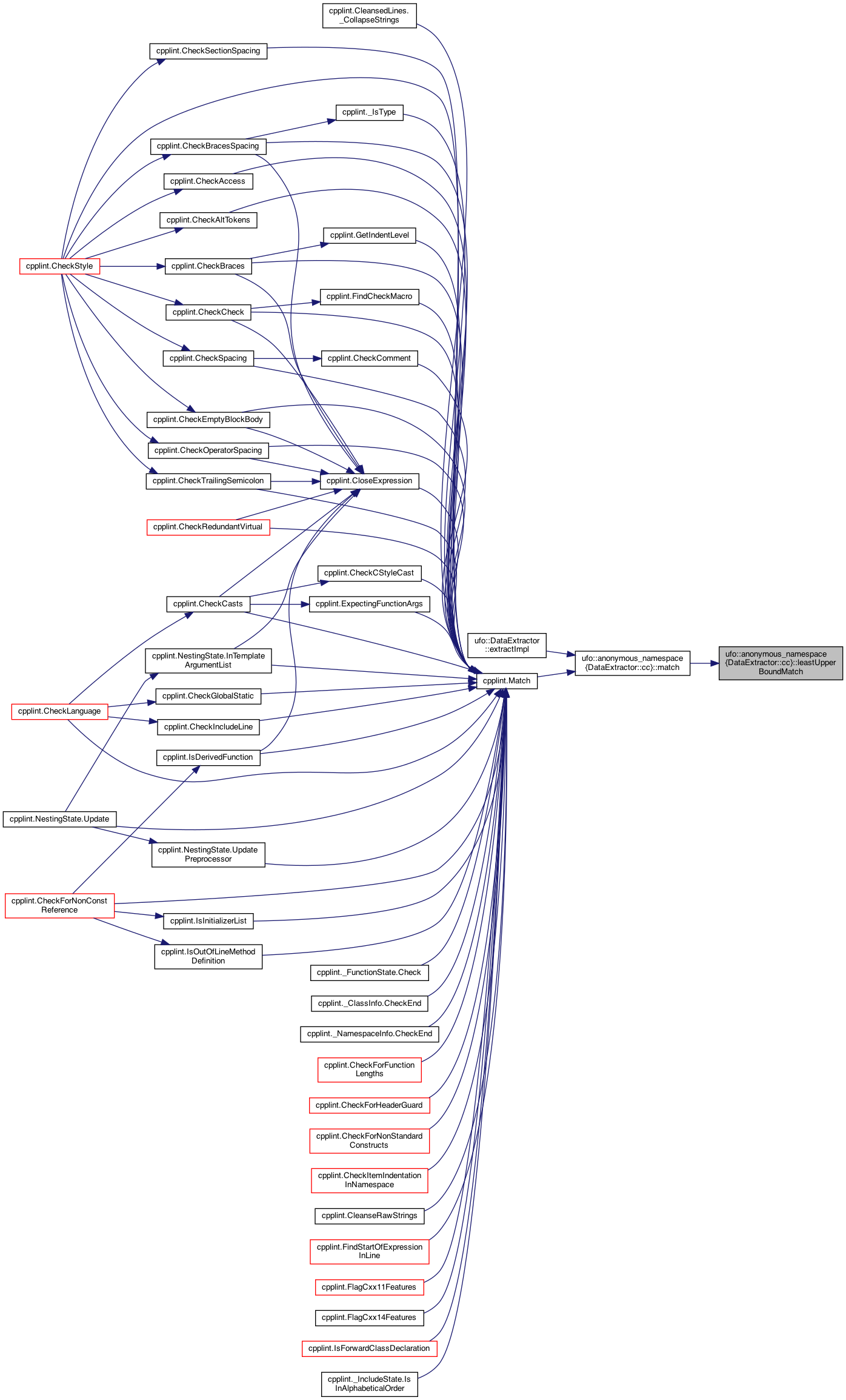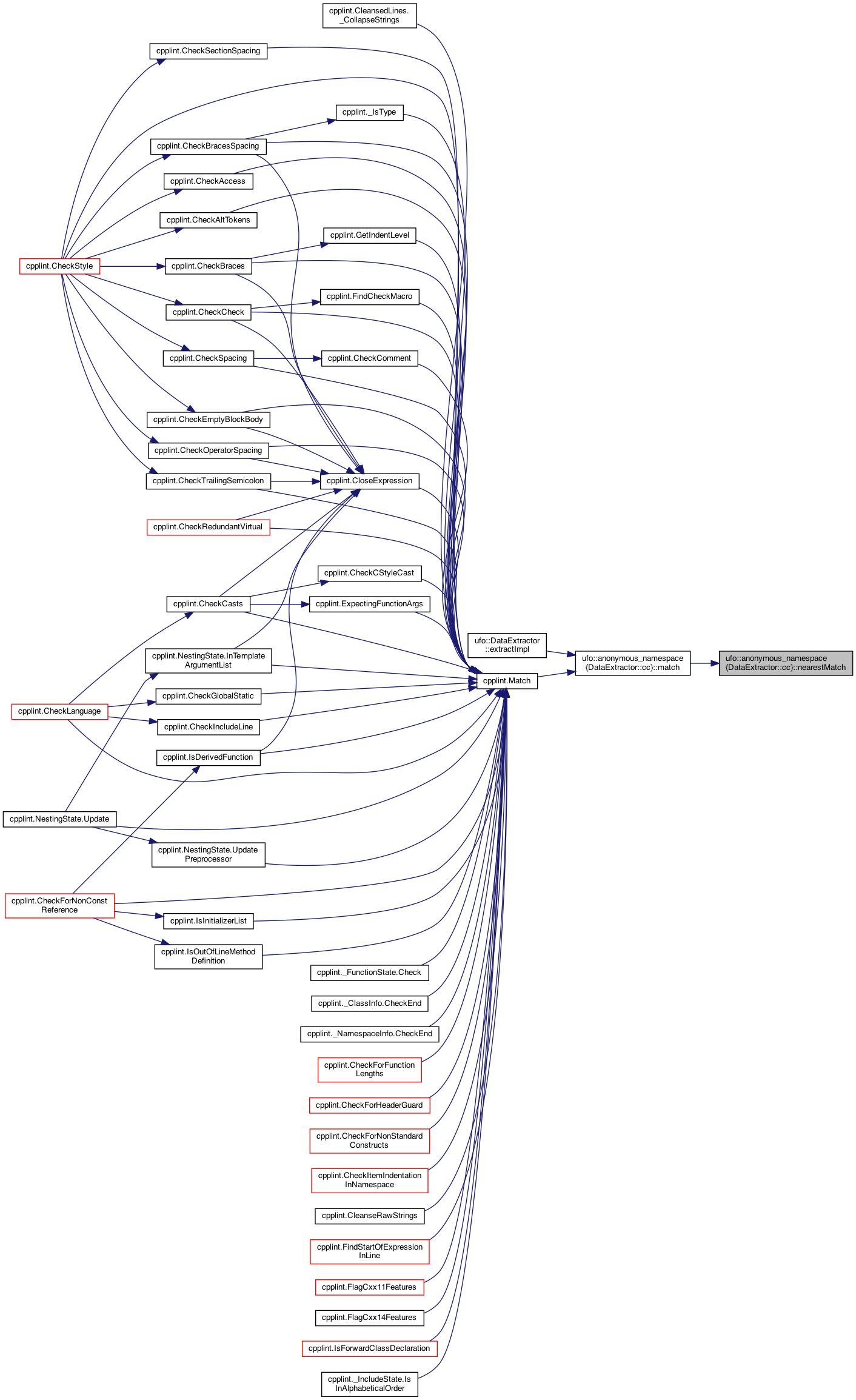Classes | |
| class | SortUpdateVisitor |
| Boost visitor which allows us to sort a vector. More... | |
| class | SortVisitor |
| Boost visitor which allows us to sort a vector. More... | |
Functions | |
| template<typename T > | |
| void | exactMatch (const std::string &varName, const std::vector< T > &varValues, const T &obVal, ConstrainedRange &range) |
| Update our extract constraint based on an exact match against the specified coordinate indexing a dimension of the payload array. More... | |
| template<typename T > | |
| void | nearestMatch (const std::string &varName, const std::vector< T > &varValues, const T &obVal, ConstrainedRange &range) |
| Update our extract constraint based on a nearest match against the specified coordinate indexing a dimension of the payload array. More... | |
| void | nearestMatch (const std::string &varName, const std::vector< std::string > &varValues, const std::string &obVal, ConstrainedRange &range) |
| template<typename T > | |
| void | leastUpperBoundMatch (const std::string &varName, const std::vector< T > &varValues, const T &obVal, ConstrainedRange &range) |
| Update our extract constraint based on a least-upper-bound match against the specified coordinate indexing a dimension of the payload array. More... | |
| void | leastUpperBoundMatch (const std::string &varName, const std::vector< std::string > &varValues, const std::string &obVal, ConstrainedRange &range) |
| template<typename T > | |
| void | greatestLowerBoundMatch (const std::string &varName, const std::vector< T > &varValues, const T &obVal, ConstrainedRange &range) |
| Update our extract constraint based on a greatest-lower-bound match against the specified coordinate indexing a dimension of the payload array. More... | |
| void | greatestLowerBoundMatch (const std::string &varName, const std::vector< std::string > &varValues, const std::string &obVal, ConstrainedRange &range) |
| template<typename T > | |
| void | match (InterpMethod method, const std::string &varName, const std::vector< T > &varValues, const T &obVal, ConstrainedRange &range) |
Restrict range to the subrange of varValues matching obVal according to the criteria of method. More... | |
| template<typename CoordinateValue > | |
| float | linearInterpolation (const std::string &varName, const std::vector< CoordinateValue > &varValues, const CoordinateValue &obVal, const ConstrainedRange &range, const DataExtractorPayload< float >::const_array_view< 1 >::type &interpolatedArray) |
Perform piecewise linear interpolation of the provided array varValues at 'location' obVal. More... | |
| float | linearInterpolation (const std::string &varName, const std::vector< std::string > &varValues, const std::string &obVal, const ConstrainedRange &range, const DataExtractorPayload< float >::const_array_view< 1 >::type &interpolatedArray) |
Function Documentation
◆ exactMatch()
| void ufo::anonymous_namespace{DataExtractor.cc}::exactMatch | ( | const std::string & | varName, |
| const std::vector< T > & | varValues, | ||
| const T & | obVal, | ||
| ConstrainedRange & | range | ||
| ) |
Update our extract constraint based on an exact match against the specified coordinate indexing a dimension of the payload array.
- Parameters
-
[in] varName Name of the coordinate to match against. [in] varValues Vector of values of that coordinate. [in] obVal Value to match. [in,out] range On input, the range of slices of the payload array along the dimension indexed by varValuesthat matches all constraints considered so far. On output, the subrange of slices matching also the current constraint.
Definition at line 88 of file DataExtractor.cc.
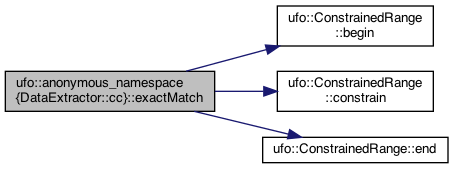
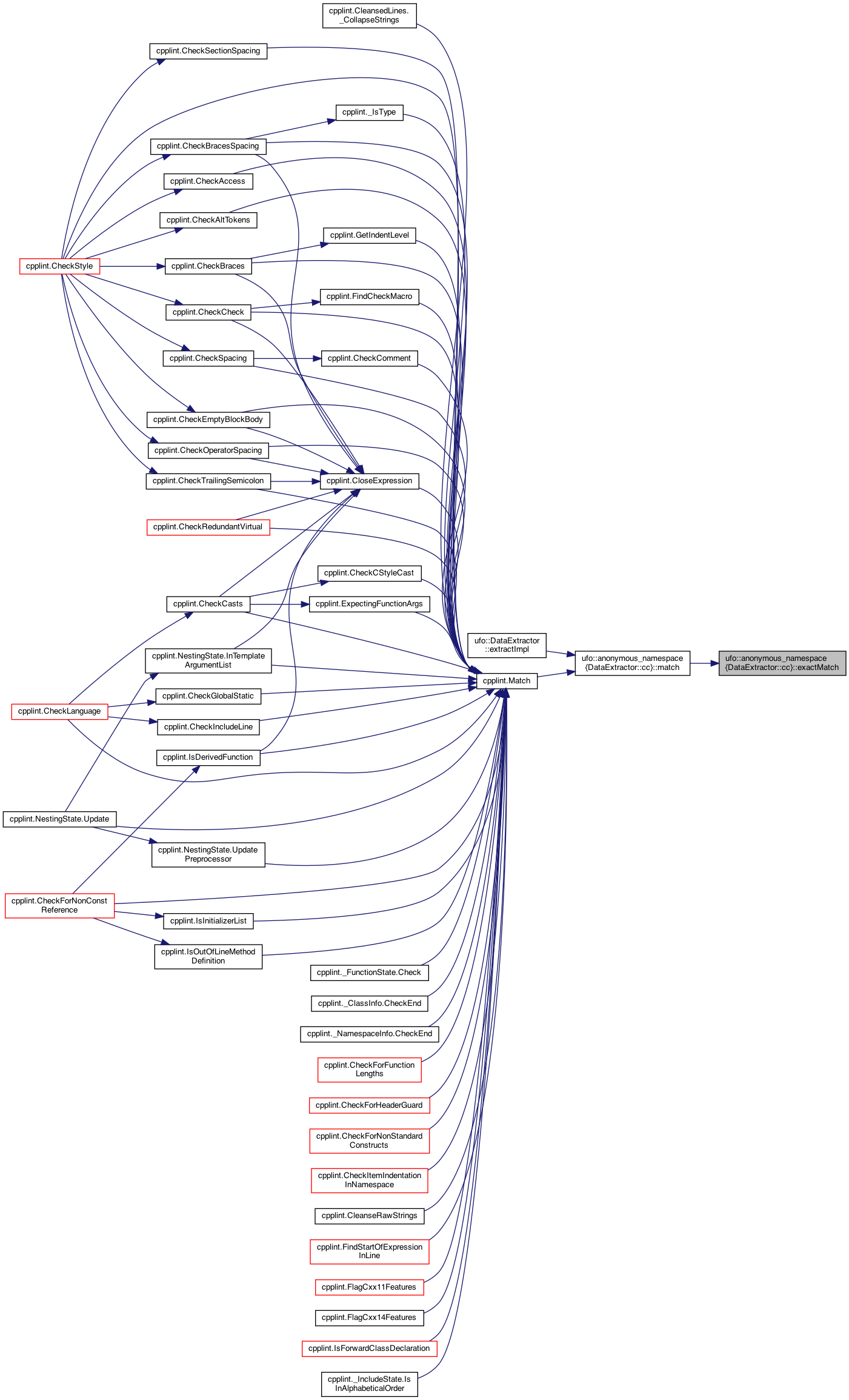
◆ greatestLowerBoundMatch() [1/2]
| void ufo::anonymous_namespace{DataExtractor.cc}::greatestLowerBoundMatch | ( | const std::string & | varName, |
| const std::vector< std::string > & | varValues, | ||
| const std::string & | obVal, | ||
| ConstrainedRange & | range | ||
| ) |
◆ greatestLowerBoundMatch() [2/2]
| void ufo::anonymous_namespace{DataExtractor.cc}::greatestLowerBoundMatch | ( | const std::string & | varName, |
| const std::vector< T > & | varValues, | ||
| const T & | obVal, | ||
| ConstrainedRange & | range | ||
| ) |
Update our extract constraint based on a greatest-lower-bound match against the specified coordinate indexing a dimension of the payload array.
- Parameters
-
[in] varName Name of the coordinate to match against. [in] varValues Vector of values of that coordinate. [in] obVal Value to match. [in,out] range On input, the range of slices of the payload array along the dimension indexed by varValuesthat matches all constraints considered so far. On output, the subrange of slices matching also the current constraint.
Definition at line 256 of file DataExtractor.cc.
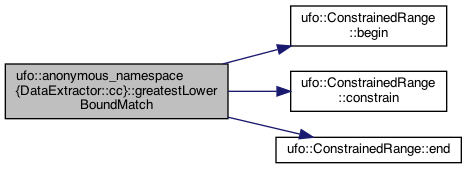
◆ leastUpperBoundMatch() [1/2]
| void ufo::anonymous_namespace{DataExtractor.cc}::leastUpperBoundMatch | ( | const std::string & | varName, |
| const std::vector< std::string > & | varValues, | ||
| const std::string & | obVal, | ||
| ConstrainedRange & | range | ||
| ) |
◆ leastUpperBoundMatch() [2/2]
| void ufo::anonymous_namespace{DataExtractor.cc}::leastUpperBoundMatch | ( | const std::string & | varName, |
| const std::vector< T > & | varValues, | ||
| const T & | obVal, | ||
| ConstrainedRange & | range | ||
| ) |
Update our extract constraint based on a least-upper-bound match against the specified coordinate indexing a dimension of the payload array.
- Parameters
-
[in] varName Name of the coordinate to match against. [in] varValues Vector of values of that coordinate. [in] obVal Value to match. [in,out] range On input, the range of slices of the payload array along the dimension indexed by varValuesthat matches all constraints considered so far. On output, the subrange of slices matching also the current constraint.
Definition at line 209 of file DataExtractor.cc.
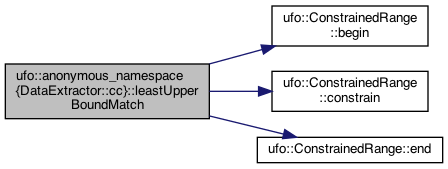
◆ linearInterpolation() [1/2]
| float ufo::anonymous_namespace{DataExtractor.cc}::linearInterpolation | ( | const std::string & | varName, |
| const std::vector< CoordinateValue > & | varValues, | ||
| const CoordinateValue & | obVal, | ||
| const ConstrainedRange & | range, | ||
| const DataExtractorPayload< float >::const_array_view< 1 >::type & | interpolatedArray | ||
| ) |
Perform piecewise linear interpolation of the provided array varValues at 'location' obVal.
It is assumed that the provided 1D array is described by coordinate varName. This function returns the value produced by piecewise linear interpolation of this array at the point obVal.
- Parameters
-
[in] range Defines how to constrain (slice) varValuesalong withinterpolatedArray.[in] varName Name of the coordinate along which to interpolate. [in] varValues Vector of values of that coordinate. [in] obVal Interpolation location. [in] interpolatedArray Interpolated array.
Definition at line 352 of file DataExtractor.cc.

◆ linearInterpolation() [2/2]
| float ufo::anonymous_namespace{DataExtractor.cc}::linearInterpolation | ( | const std::string & | varName, |
| const std::vector< std::string > & | varValues, | ||
| const std::string & | obVal, | ||
| const ConstrainedRange & | range, | ||
| const DataExtractorPayload< float >::const_array_view< 1 >::type & | interpolatedArray | ||
| ) |
◆ match()
| void ufo::anonymous_namespace{DataExtractor.cc}::match | ( | InterpMethod | method, |
| const std::string & | varName, | ||
| const std::vector< T > & | varValues, | ||
| const T & | obVal, | ||
| ConstrainedRange & | range | ||
| ) |
Restrict range to the subrange of varValues matching obVal according to the criteria of method.
- Parameters
-
[in] method Matching method. [in] varName Name of the coordinate to match against. [in] varValues Vector of values of that coordinate. [in] obVal Value to match. [in,out] range On input, the range of slices of the payload array along the dimension indexed by varValuesthat matches all constraints considered so far. On output, the subrange of slices matching also the current constraint.
Definition at line 310 of file DataExtractor.cc.
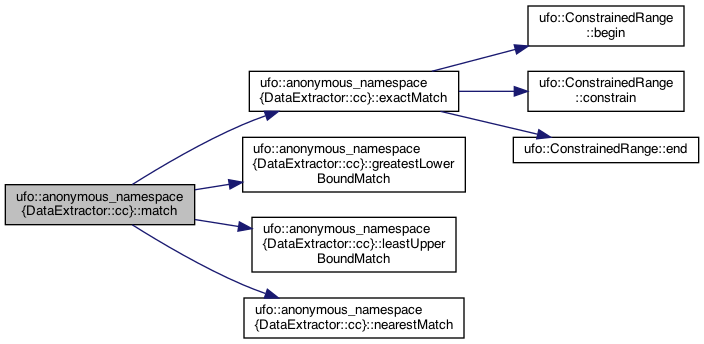
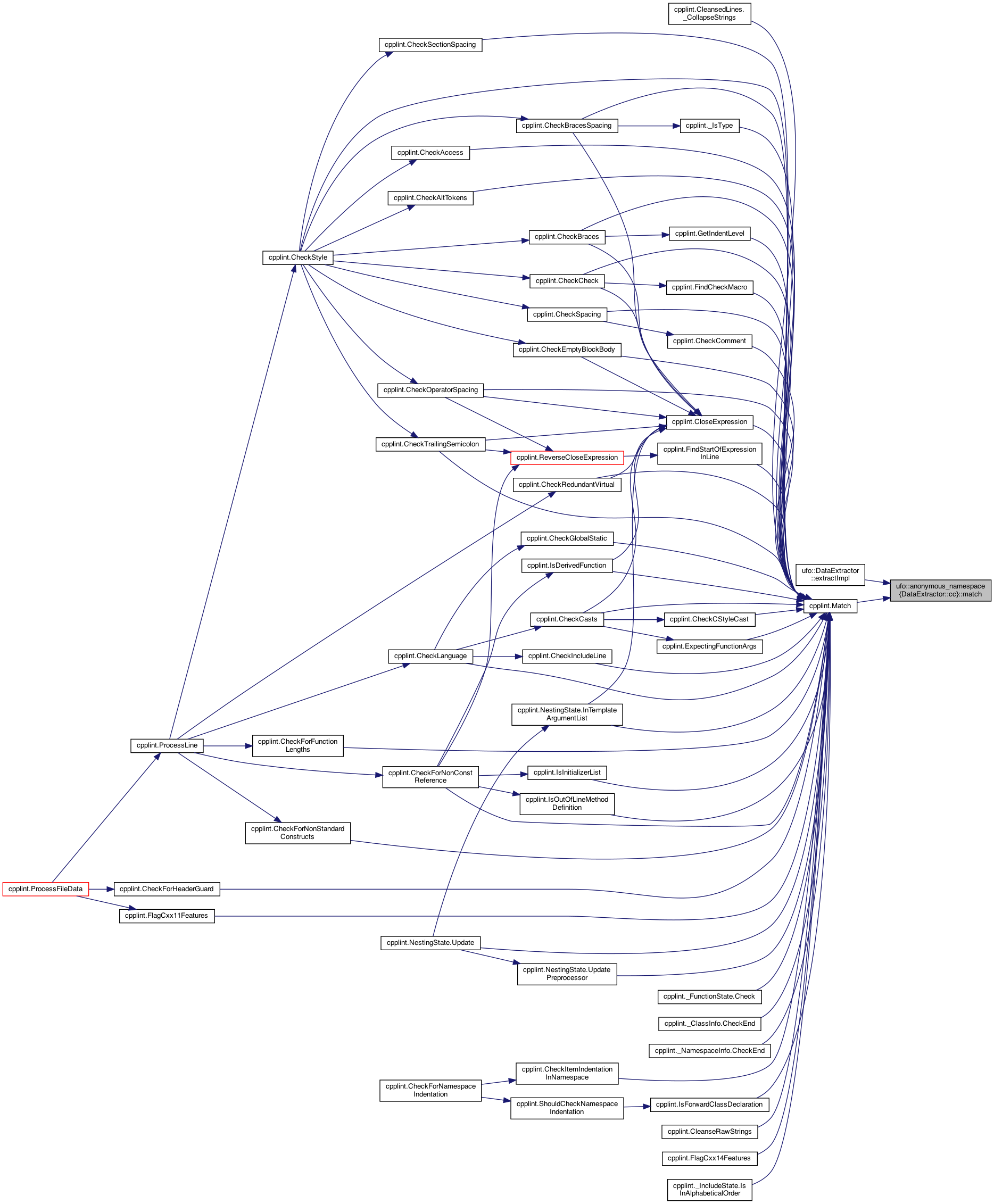
◆ nearestMatch() [1/2]
| void ufo::anonymous_namespace{DataExtractor.cc}::nearestMatch | ( | const std::string & | varName, |
| const std::vector< std::string > & | varValues, | ||
| const std::string & | obVal, | ||
| ConstrainedRange & | range | ||
| ) |
◆ nearestMatch() [2/2]
| void ufo::anonymous_namespace{DataExtractor.cc}::nearestMatch | ( | const std::string & | varName, |
| const std::vector< T > & | varValues, | ||
| const T & | obVal, | ||
| ConstrainedRange & | range | ||
| ) |
Update our extract constraint based on a nearest match against the specified coordinate indexing a dimension of the payload array.
Method:
- Find first discovered nearest value in our loop.
Determine which indices match this nearest value. (more than one index could have this one value).
[1, 1, 2, 3, 4, 5]
Nearest neighbour extraction of “1”, has more than one neighbour. That is, more than one index with the same value have the same distance:
[1, 1] i.e. range=(0, 2)
Note that an alternative implementation could consider equidistant values, though it was decided this was not desirable behaviour:
[1, 1, 2, 3, 4, 5]
Nearest neighbour extraction of “1.5” could be then considered to have 3 equidistant neighbours (1, 1, 2). That is, two different values with the same distance.
[1, 1, 2] i.e. range=(0, 3)
- Parameters
-
[in] varName Name of the coordinate to match against. [in] varValues Vector of values of that coordinate. [in] obVal Value to match. [in,out] range On input, the range of slices of the payload array along the dimension indexed by varValuesthat matches all constraints considered so far. On output, the subrange of slices matching also the current constraint.
Definition at line 157 of file DataExtractor.cc.
